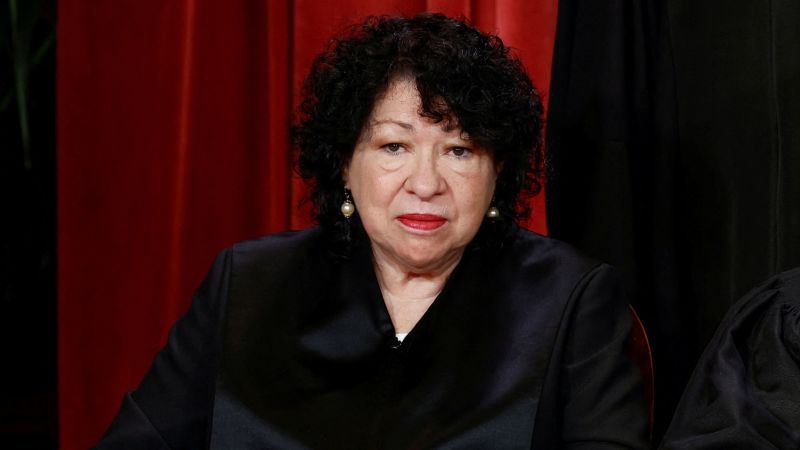Justice Sonia Sotomayor, the Supreme Court’s senior liberal, slammed the Trump administration’s handling of immigration matters in afiery dissent Mondayand accused her colleagues of “rewarding lawlessness” by backing its latest emergency appeal.
Sotomayor’s scathing, 19-page dissent came in a case in which the court’s majority backed the administration’s move to deport certain migrants tocountries other than their homeland, including places like South Sudan, with minimal notice. But her opinion, joined by the court’s other two liberals, took much broader aim at the administration’s overall approach to federal courts.
Writing that President Donald Trump’s administration had “openly flouted two court orders,” Sotomayor warned about the long-term consequences of siding with the Department of Homeland Security in the cases.
“Even if the orders in question had been mistaken, the government had a duty to obey them until they were ‘reversed by orderly and proper proceedings,’” Sotomayor wrote. “That principle is a bedrock of the rule of law. The government’s misconduct threatens it to its core.”
The high court, Sotomayor wrote, is abetting the administration’s behavior.
“This is not the first time the court closes its eyes to noncompliance, nor, I fear, will it be the last,” Sotomayor wrote. “Yet each time this court rewards noncompliance with discretionary relief, it further erodes respect for courts and for the rule of law.”
Her dissent was all the more striking given that the majority itself provided no rationale for the decision. That is often the case on the Supreme Court’s emergency docket, but the majority has lately weighed in more regularly to offer some explanation for its decisions.
Despite Trump’s vociferous –and private– complaints about the judiciary and, at times, the Supreme Court itself, his second administration has won far more emergency appeals at the high court this year than it has lost. The order Monday marked the 10th time the court has granted a request from Trump on the emergency docket, though a few of those casesamounted to a mixed winfor the administration.
Sotomayor’s most blistering critique was aimed at the notion that the Trump administration has attempted to skirt lower court orders. In this case, she wrote, the DHS had attempted to fly six migrants from various countries to war-torn South Sudan with limited notice – despite a lower court injunction that placed similar removals on hold. Those migrants have been held at a US military base Djibouti for weeks awaiting a resolution to their cases.
“The government’s assertion that these deportations could be reconciled with the injunction is wholly without merit,” Sotomayor wrote.
“Given its conduct in these proceedings, the government’s posture resembles that of the arsonist who calls 911 to report firefighters for violating a local noise ordinance,” her dissent adds.
The Trump administration had argued that a lower court’s order requiring officials to give them an opportunity to claim fear of torture under federal law overstepped legal bounds and complicated foreign policy. The administration claimed that the migrants who were sent to third countries have significant criminal records and represent the “worst of the worst” of people in the US illegally.
The migrants’ lawyers have rejected that assertion.
The Convention Against Torture, ratified by the Senate in 1994, generally bars deportation or extradition to countries where there is a possibility that the migrant might be tortured. The law is vague about how an administration is supposed to make that determination and what process rights are due to the migrant at issue.
Humanitarian groups describe the situation in South Sudan, where some of the migrants are destined, as dire. The United Nations recently warned aboutfood insecurity in the country, which is also facing political instability and escalating violence. The migrants included nationals from Cuba, Vietnam and Laos.
The Boston-based 1st US Circuit Court of Appeals rejected the government’s request to pause a lower court ruling halting the policy in May, a decision that came amidreported plans to send migrants to Libya, a country widely criticized for mistreatment of detainees and ongoing civil unrest. The Trump administration appealed to the Supreme Court on May 27.
Sotomayor, President Barack Obama’s first nominee to the high court, has also been among the most critical of the Trump administration publicly. Speaking at anevent in March in Washington, she advocated for a “fearlessly independent” judiciary and said she worried about changing standards and norms. She did not specifically mention Trump during those remarks.
“Once norms are broken,” she said at the time, “then you’re shaking some of the foundation of the rule of law.”
